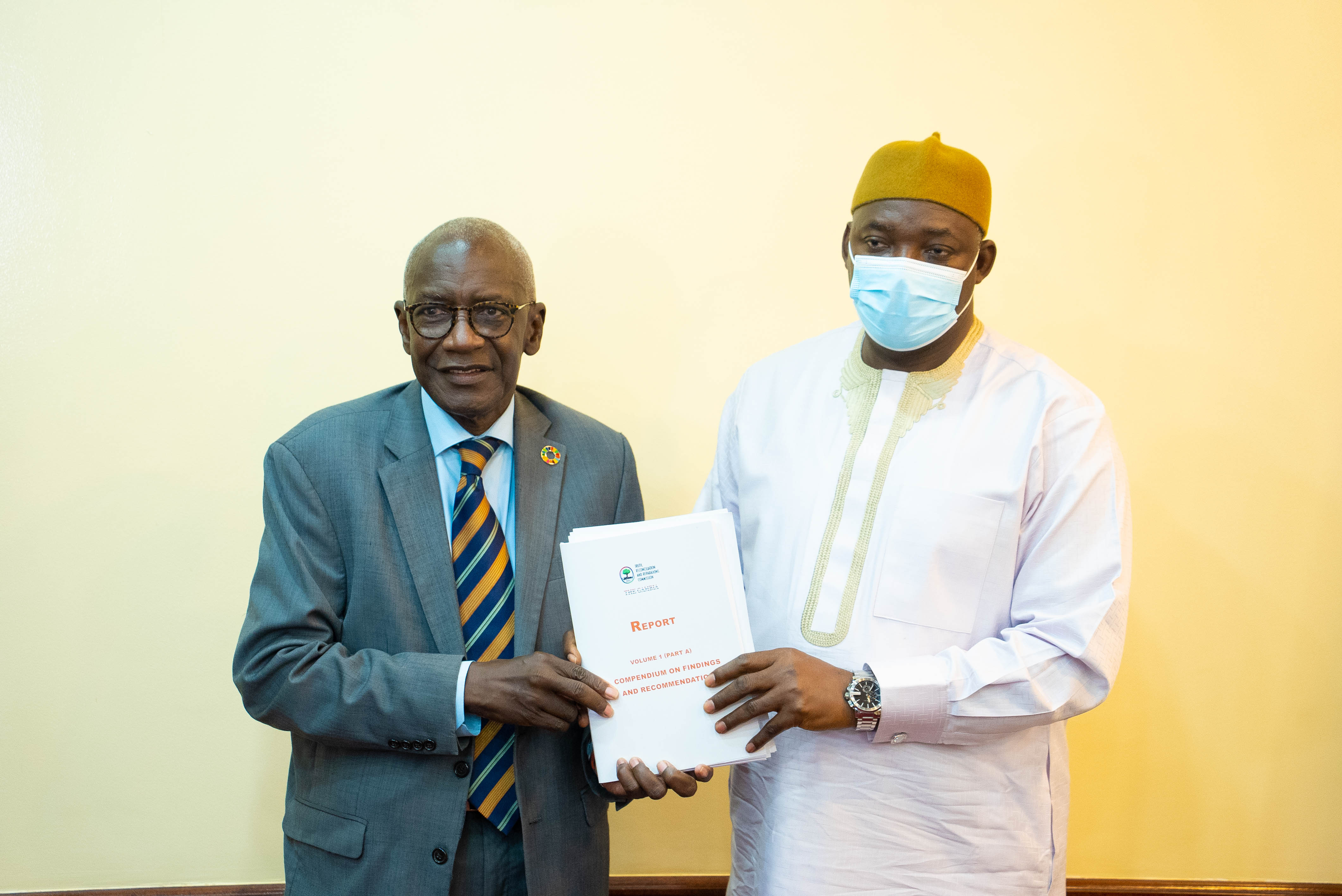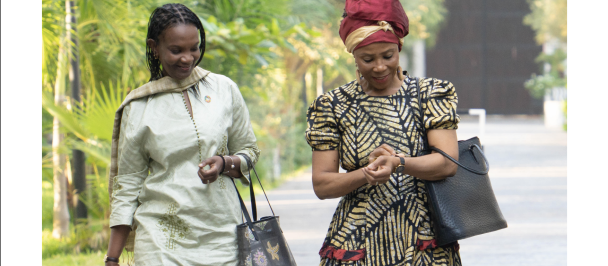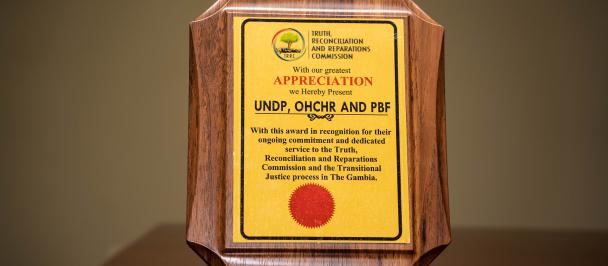TRRC Chairman handing over the report to the President of The Gambia
Following the peaceful transfer of power in January 2017 after 22 years of autocratic rule, the Government of The Gambia embarked on a set of interrelated reform processes to come to terms with the country’s past and lay the ground for democratic governance and durable peace.[1] Notable progress has been made in key peacebuilding areas, particularly Transitional Justice with the establishment of the Truth, Reconciliation and Reparations Commission (TRRC) through an Act of the National Assembly in December 2017. The TRRC was mandated to investigate and establish an impartial historical record of human rights violations from July 1994 to January 2017 and to consider reparations for the victims of abuses, promote reconciliation and prevent recurrence. The TRRC mandate also included recommending prosecution or amnesty for alleged perpetrators. The TRRC was an independent body under the direction of eleven Commissioners representing the country’s ethno-regional, gender and religious diversity, who operated with the support of a Secretariat. On 25 November 2021, the TRRC submitted its Final Report to President Adama Barrow, which comprised of 17 volumes, 427 findings and 218 recommendations.
The TRRC has achieved international recognition for its ground-breaking achievements in the history of truth commissions, especially for the level of collaboration between the TRRC and perpetrators – many of whom voluntarily came forward to confess atrocities – and for the level of public interest generated by the live streamed public hearings and outreach (including diaspora) activities in several local languages. In addition to public hearings, during which victims and alleged or confessed perpetrators testified live before the TRRC, including on several accounts of sexual and gender-based abuses, violations, and crimes, the TRRC has engaged over 50,000 Gambians at home and in the diaspora in community-led outreach activities. A perception survey conducted in 2020 showed that 90% of Gambians (from a sample of 1,200 Gambians) felt that the TRRC was performing well or very well. TRRC engagements have helped to calm down victims and communities and helped to maintain social cohesion as most of the population awaits to know of the TRRC’s final recommendations.
UNDP and OHCHR provided consistent, broad, and catalytic support to the establishment of the TRRC and its activities with funding from the UN Peacebuilding Fund as well as UNDP core resources since May 2017. The support included nation-wide consultations on the establishment of the TRRC and provided advisory services to the Government on the formation of the Secretariat and technical input on the bills establishing the TRRC and the National Human Rights Commission. Specialized trainings were provided for the Commissioners and staff on fundamental aspects of the work of the TRRC, from witness protection to the development of a reparations framework, including the policy, regulations and guidance note for victims and the public on the TRRC reparations process, and dedicate support services for over 2000 victims and their families to ease and encourage their participation in the process. UNDP and OHCHR also contributed to strengthening capacities of Gambian civil society organizations, including women and youth led organizations, women community leaders and youth leaders as well as religious and traditional leaders, to facilitate outreach activities and support victims. With funding from the Government of Ireland, UNDP and OHCHR contributed to responding to the needs of survivors of sexual and gender-based violence (SGBV) and encouraged their active participation in the activities of the TRRC. Consequently, and whilst being mindful of the unique experiences and needs of survivors of conflict-related sexual violence, the TRRC witnessed a 300% increase in statements on SGBV between January 2019 and January 2020.
The completion of the work of the TRRC and the presentation of its final report marked a significant step towards consolidating peacebuilding and sustaining peace in The Gambia. The TRRC process has made important contributions to national reconciliation and transitional justice that have culminated in a set of recommendations. These recommendations, if implemented, have the potential to further consolidate peacebuilding gains and advance reform efforts across several areas of the Gambian society. The operationalization of the recommendations will require the establishment of effective implementation mechanisms and strengthened capacities of implementing actors.
[1] Security Sector Reform, legislative reform, including the drafting of a new Constitution, and the establishment of a permanent, independent National Human Rights Commission.

 Locations
Locations


